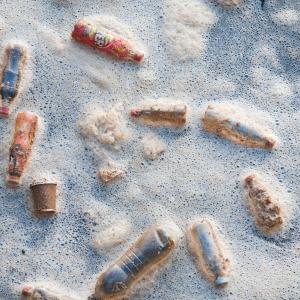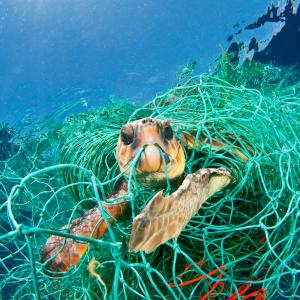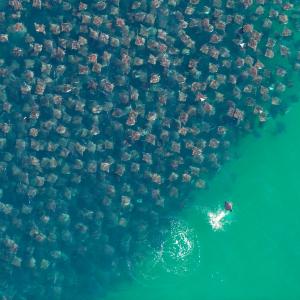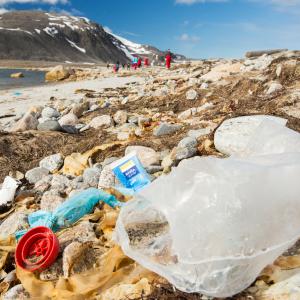Even if you live hundreds of miles from the coast, the plastic you throw away could make its way into the sea. Once the plastic is in the ocean, it decomposes very slowly, breaking into tiny pieces known as microplastics, which can enter the marine food chain and become incredibly damaging to sea life. The main source of ocean plastic pollution is land-based—80% of plastic in the ocean originates on land. But what does that really mean? Where is it coming from?
There are three main ways plastic ends up in the oceans:
- Throwing plastic in the bin when it could be recycled
Plastic you put in the bin ends up in landfill. When rubbish is being transported to landfill, plastic is often blown away because it’s so lightweight. From there, it can eventually clutter around drains and enter rivers and the sea this way.
- Littering
Litter dropped on the street doesn’t stay there. Rainwater and wind carries plastic waste into streams and rivers, and through drains. Drains lead to the ocean!
Careless and improper waste disposal is also a big contributor – illegal dumping of waste adds greatly to the plastic surge in our seas.
- Products that go down the drain
Many of the products we use daily are flushed down toilets, including wet wipes, cotton buds and sanitary products. Microfibres are even released into waterways when we wash our clothes in the washing machine. They are too small to be filtered out by waste water plants and end up being consumed by small marine species, eventually even ending up in our food chain.
A positive move in recent months was a ban on microbeads in rinse-off cosmetic and cleaning products introduced by the UK Government, so that these small plastic beads will no longer get washed down the sink and out into our oceans, but there are many more items that can also contribute to the problem.
The bottom line
How does plastic get into the ocean? The bottom line is us. Whether we mean to litter or not, there's always a chance the plastic we throw away could make it into the sea, and from there who knows? Maybe as far as the Arctic.
Big changes start with small steps and we all have the power to make a difference. What will you do to start cutting the plastic in your life?
We’re working with Sky to protect and restore our amazing oceans. Find out more about Sky Ocean Rescue’s fight against plastic pollution.
 Tips to reduce your plastic waste
Tips to reduce your plastic waste
 Join WWF as a member and protect our oceans
Join WWF as a member and protect our oceans
 Learn about our oceans and marine life
Learn about our oceans and marine life
 Plastics: Why we must act now
Plastics: Why we must act now